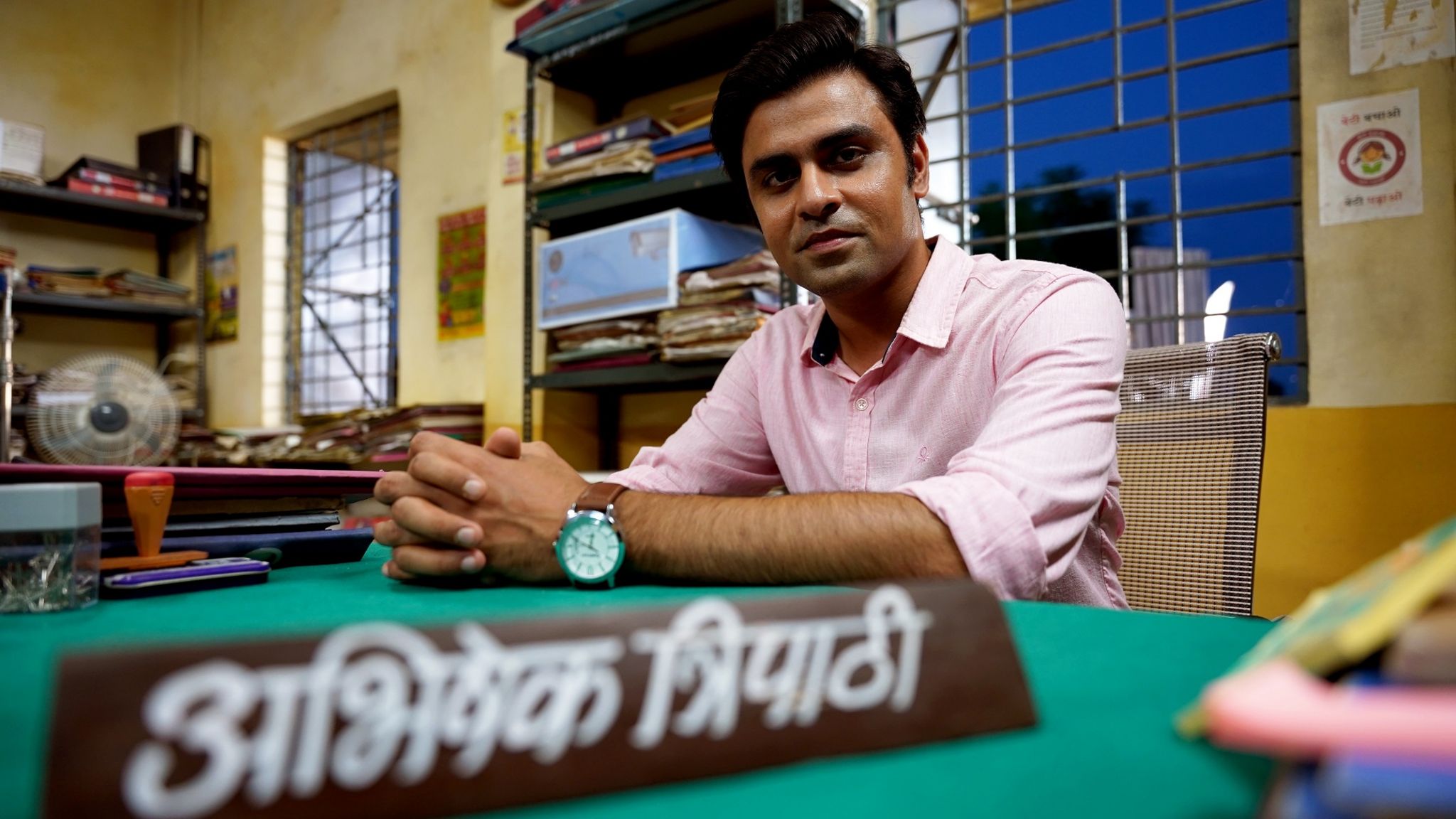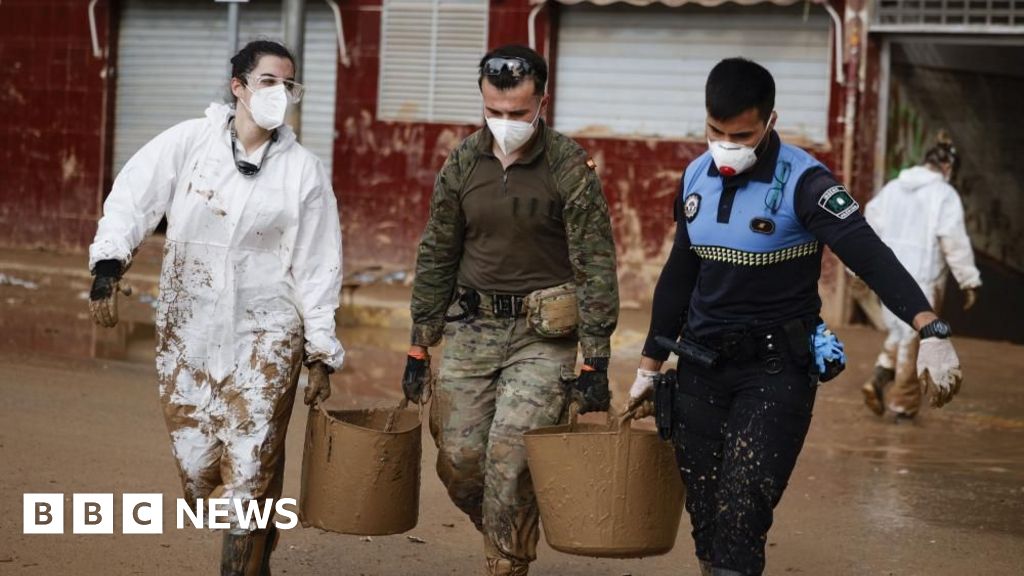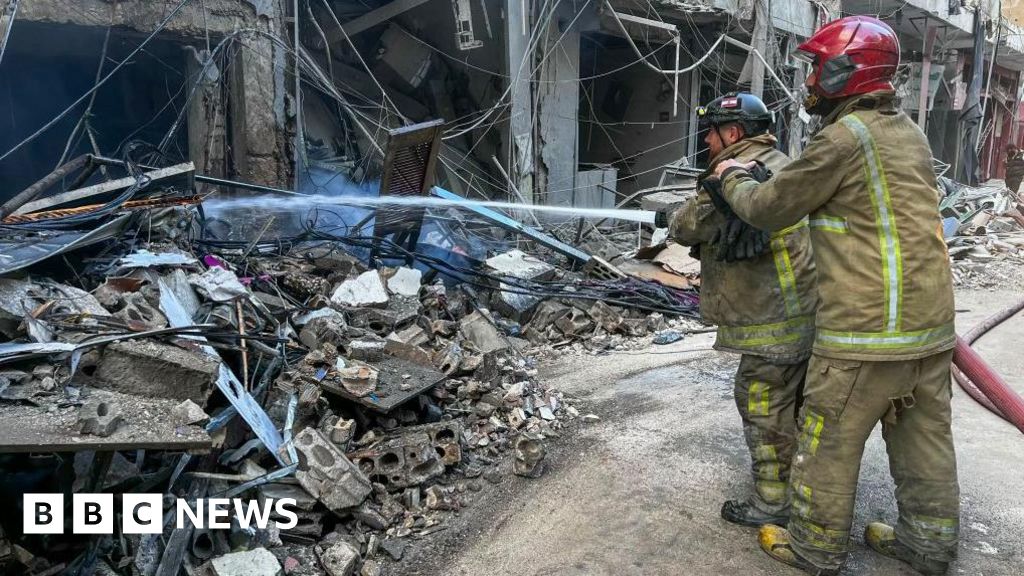ARTICLE AD BOX
 Image source, Gautam Lalwani
Image source, Gautam Lalwani
Panchayat tells the story of an engineering graduate who takes up a job as a low-level bureaucrat in a fictional village
By Geeta Pandey
BBC News, Delhi
A comedy-drama, centred around the life of a city-bred young man's adventures in a remote village, has emerged as India's most-liked Hindi web show of last year.
The second season of Panchayat was also listed as the third most watched - after Rudra: The Edge of Darkness and season three of Aashram - and had the most audience recall, according to a new report.
More than 30 million people have watched season two of Panchayat and the show has an enviable IMDB rating of 8.9 out of 10 - higher than that of House of the Dragon or Stranger Things season four.
So what is it about Panchayat that has made millions of Indians fall in love with it?
The storyline is pretty simple. For lack of a better job, engineering graduate Abhishek Tripathi, played by Jitendra Kumar, takes up employment as a low-level bureaucrat in Phulera - a small fictional village in the northern state of Uttar Pradesh.
The pay is poor and his workplace - which is also his new home - is the squat building with three rooms that make up the dusty desolate office of the Panchayat (village council). His colleagues are simple rustic men, with little education.
Tripathi spends his days trying to sort out mundane problems of the villagers with help and guidance from the council members; and his nights fretting over power outages and his lonely existence - and occasionally running away from snakes.
Image source, Gautam Lalwani
Image caption,The story is based in Phulera - a small fictional village in the northern state of Uttar Pradesh
Desperately seeking a way out, he starts studying at night, preparing for an exam that would brighten his job prospects - and get him out of Phulera.
But as days and weeks and months go by, Tripathi becomes less crochety - friendships are formed and there's even the possibility of some romance.
In a country with a stark rural-urban divide, Panchayat, which is being streamed on Amazon Prime, offers a glimpse into village life to its subscribers who mostly live in cities and know little about rural India.
The story of the young bureaucrat and his simple colleagues, told with a lot of humour and affection, appears to have struck a chord with the audiences.
Neel Kamal Puri, author and retired college teacher of English literature in the northern city of Chandigarh, says she watched the show during the pandemic.
"The world around us was shut down and seemed rather dark, so I think this is what we all needed, there was something very feel-good about it."
But above all, she says, Panchayat was "an excellent show", which stood out for its "brilliant performances" and was "very nuanced in the understanding of its characters".
Image source, Gautam Lalwani
Image caption,Panchayat offers a glimpse into village life to audiences who mostly live in cities
"The series has perfect balance on many scores. It neither romanticises, nor vilifies rural life; it has very lively humour, but it's not flippant because it talks about a lot of very serious, pertinent issues."
Saibal Chatterjee, author and film critic, says "everyone got hooked on to the show because it is so relatable, so real."
He describes Panchayat as a "middle-of-the-road" show which tells simple stories of ordinary people. They were very popular in the 80s and 90s, he says, but then went out of fashion and were replaced by family drama or action.
"Most series nowadays are about spies and the underworld so Panchayat takes you by surprise in the midst of all the action-packed shows. It's a story of real people doing very real tangible things," he says.
"And what makes it special is that it's very insightful, but it is very entertaining at the same time and is not stodgy. It talks about serious issues, but in a very light-hearted way. It's funny but the intent is serious," he adds.
So we see how in Phulera, even though the village council chief is a woman, her husband wields the real power, and a decision to install power connections is taken not on the basis of where they are needed the most but who the important people are. We notice that the Panchayat officials are landed affluent people, but come across a man who's got no money to buy even the basic foodstuff.
Scriptwriter Chandan Kumar, who came up with the idea of Panchayat, says he wanted to make a show that would give people a glimpse into rural life but "the idea was not to make it preachy".
"We wanted to keep it fun. It had to be entertaining because at the end of the day, people watch shows for entertainment.
"But it's difficult to run away from serious issues," he adds.
Image source, Gautam Lalwani
Image caption,Panchayat has been praised for its "brilliant performances"
The characters in the show, Mr Kumar says, are not inspired by real people, but the show is inspired by real situations.
For the protagonist, Mr Kumar says, "it's a transitory phase, it's his first job, so I wanted to show how he struggles and learns".
Ms Puri says she's now waiting for the third season, which is due out later in the year.
Mr Kumar won't commit to a release date, but promises that "the story will continue for at least a few more seasons".

 1 year ago
46
1 year ago
46








 English (US)
English (US)